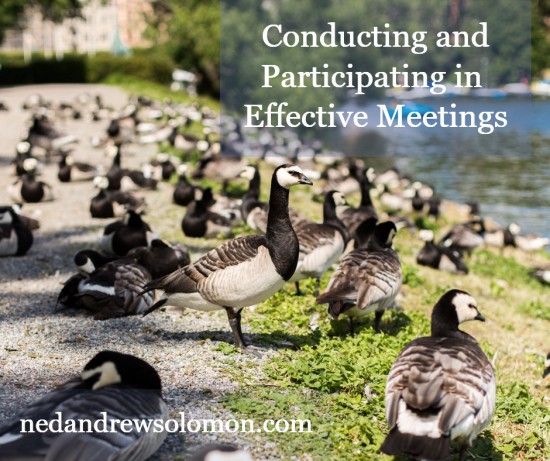I typically don’t like meetings, do you?
Meetings can be the Great Time-Suckers; the zone where productivity goes to die. The place where you’re thinking of a thousand things you’d rather or need to be doing.
But I promise you this: meetings do not have to be this way. They can be productive, energizing, an effective use of valuable time, and, dare I say, even enjoyable.
Enjoyable? Well, you and I are obviously not the same person, but I find attending a meeting enjoyable when something gets done. That’s a low bar, right? But when there’s an agreed-upon outcome, defined next steps, and accountability for successfully accomplishing those next steps, I exit lighter on my feet, feeling like the whole “meeting team” deserves an encouraging pat on the back.
Because the best meetings – in my opinion – are the ones that represent that team effort. Unless you’re talking to yourself, meetings, by definition, include a team of participants. I will go out on a limb here and say that the participant role is just as vital as the facilitator’s role.
The least effective meetings – again, in my opinion – are the ones where the chair, or director, or team leader “bludgeons” those assembled with information and directives. Why, you might ask, couldn’t the content of this “meeting” have been communicated in an email? The delivery was one-sided, and gained nothing – except maybe apathy and frustration – from those people who filled the chairs. It also cost the company, organization or agency a large number of salary $ multiplied by a certain number of staff to attend this meeting, preventing them from accomplishing other tasks that they were hired and being paid to do.
Which leads to the very first question that needs to be asked:
Do we have to have this meeting? (Just the fact that we have this meeting every Monday at 10 am or the third Tuesday of every month is not a good enough answer.)
That first question should lead to other good questions, like:
What are we hoping to accomplish at this meeting?
Who needs to be at this meeting? And, subsequently:
Are the people who need to be at this meeting available?
Not to mention:
Where will this meeting take place? (Are there transportation, parking accessibility issues that need to be addressed?)
When will this meeting begin and end? (Are you really valuing your participants’ time?)
Do the participants need information before the meeting to be prepared? (Do they even know what the purpose of this meeting is?)
I believe all of these questions and more are essential to having an effective meeting. I also believe that too many meetings take place with none or very few of these questions being posed. I am a professional meeting attendee. I have participated in 32 years’ worth of meetings at multiple organizations, mostly bad and ineffective ones. I don’t want to attend another bad or ineffective meeting where nothing happens.
Do you?

Speak Your Mind